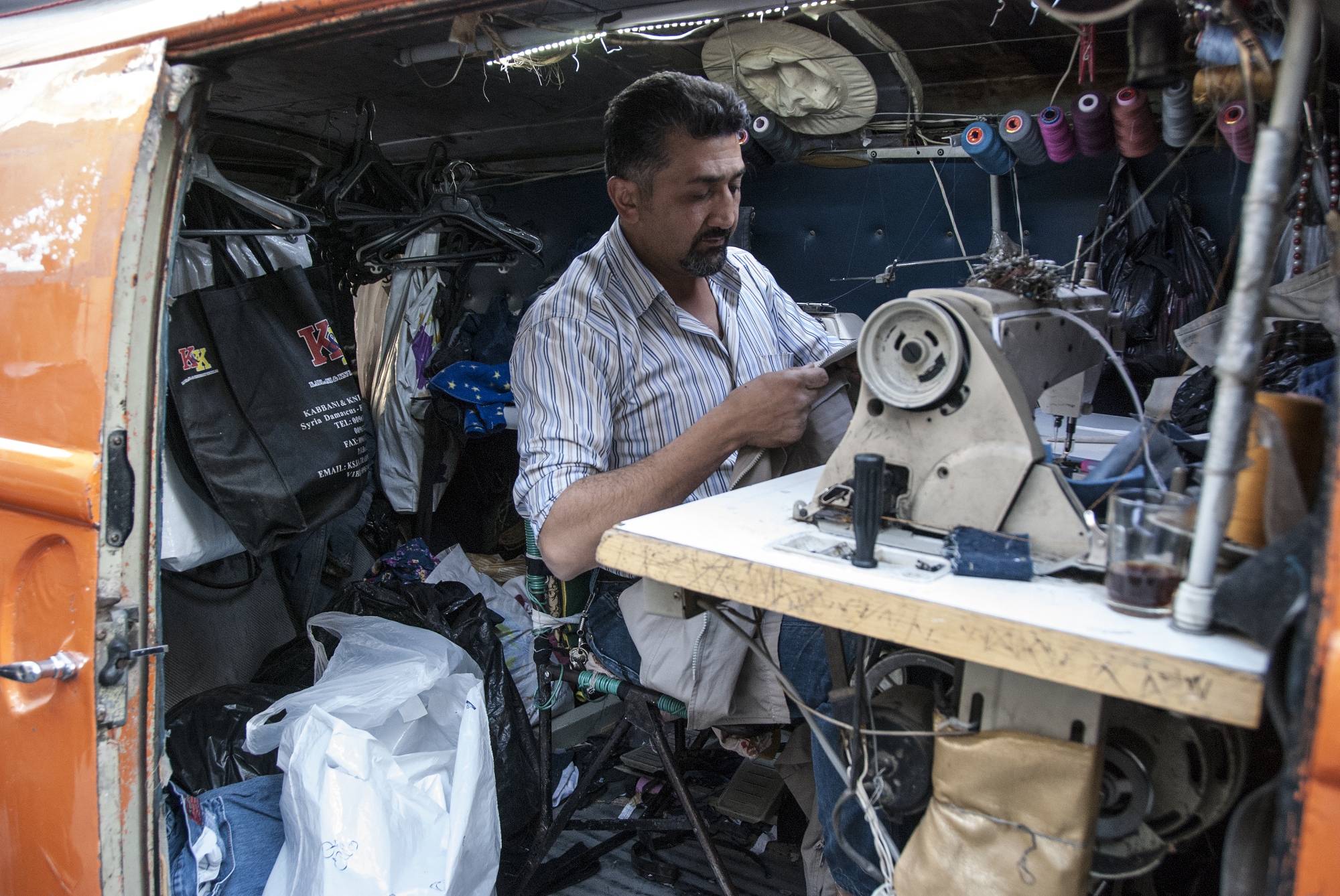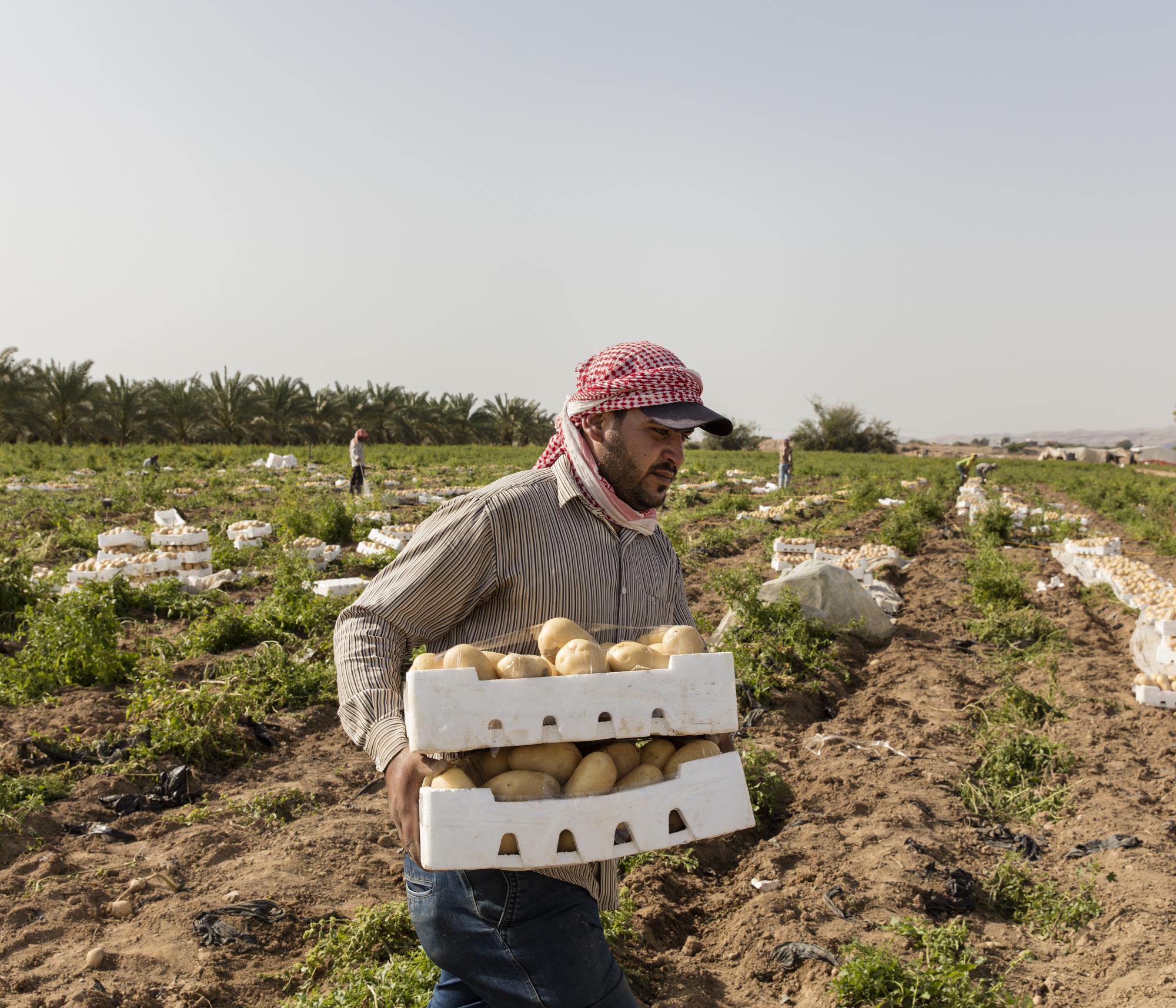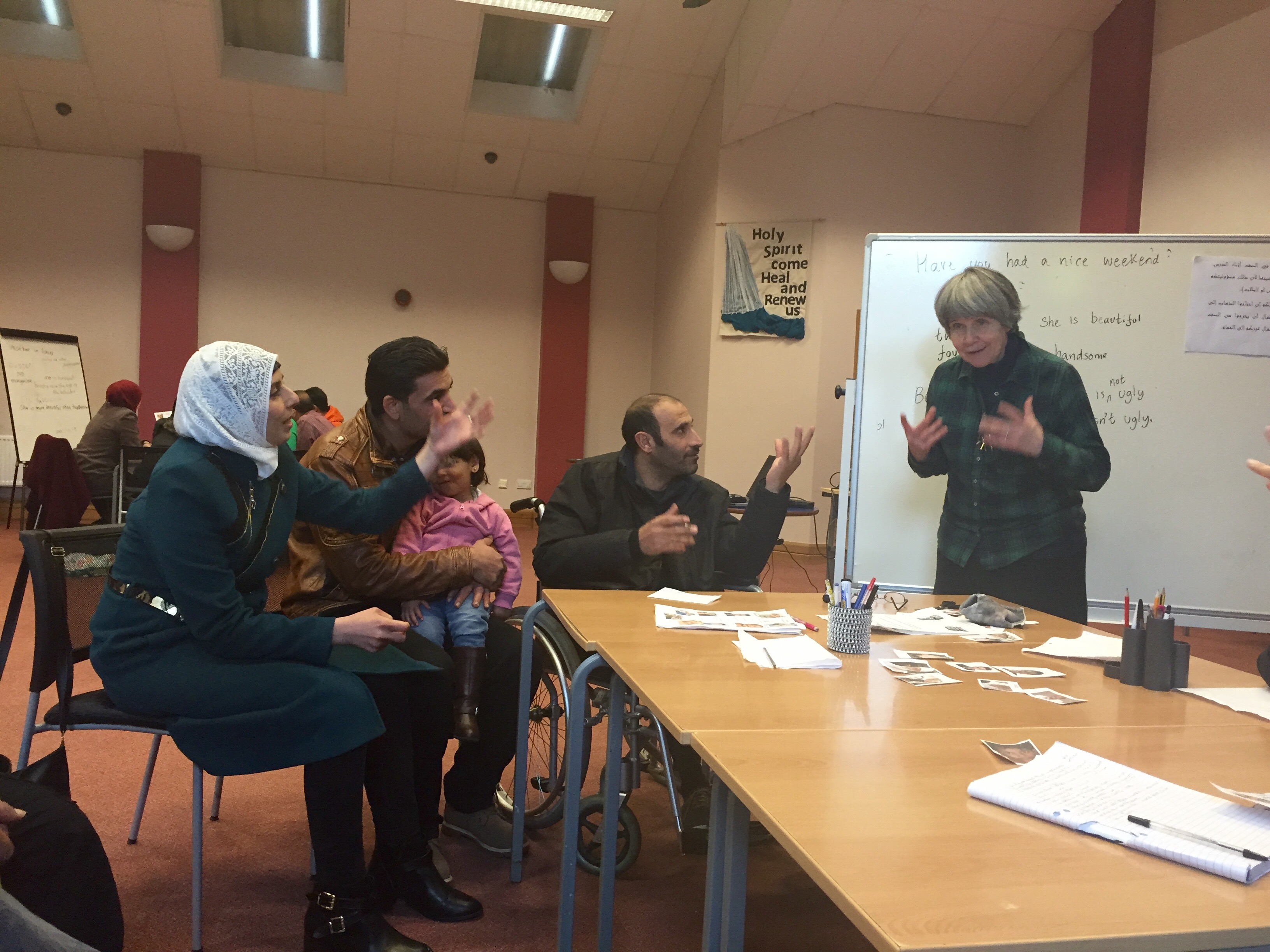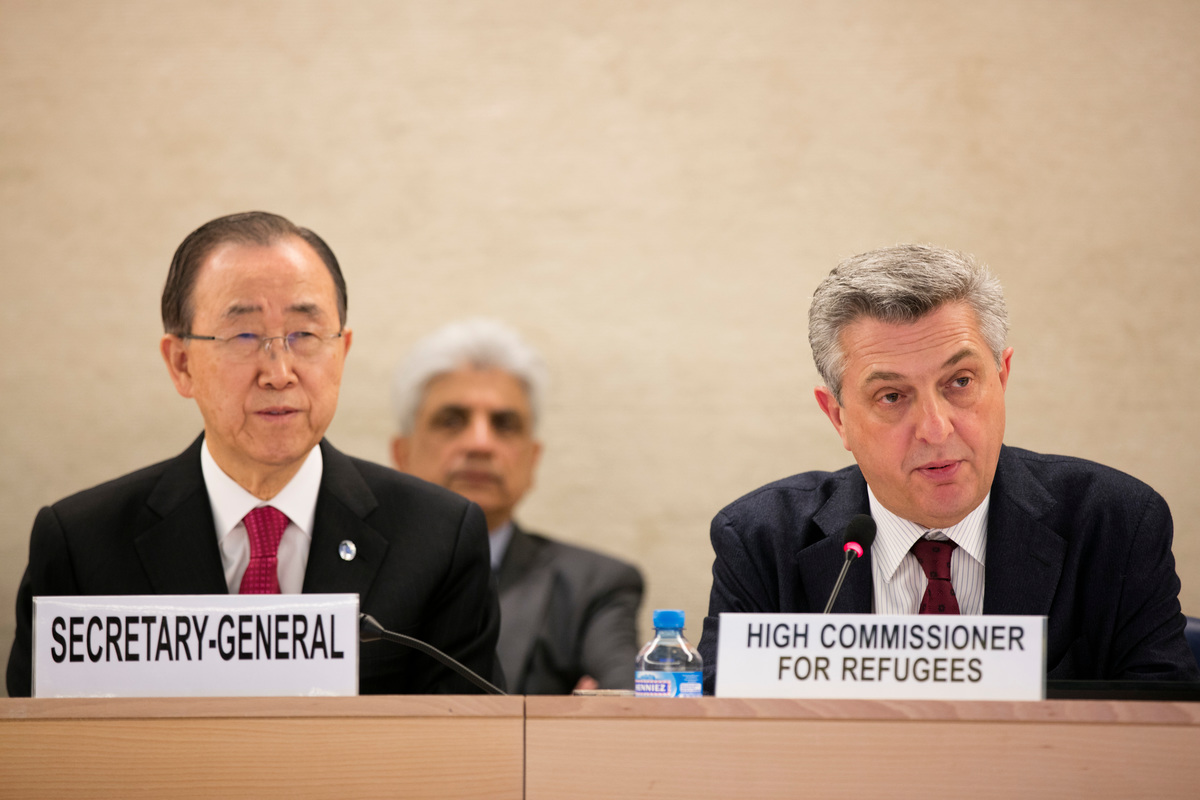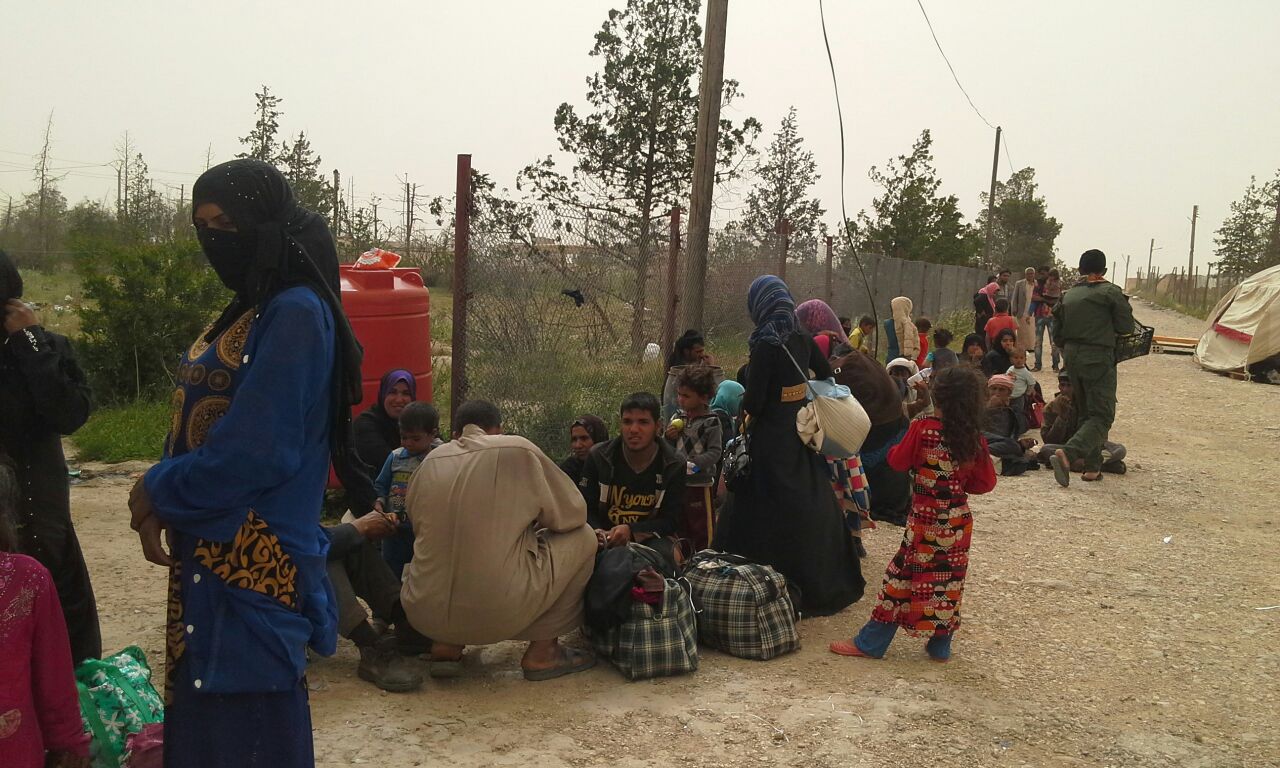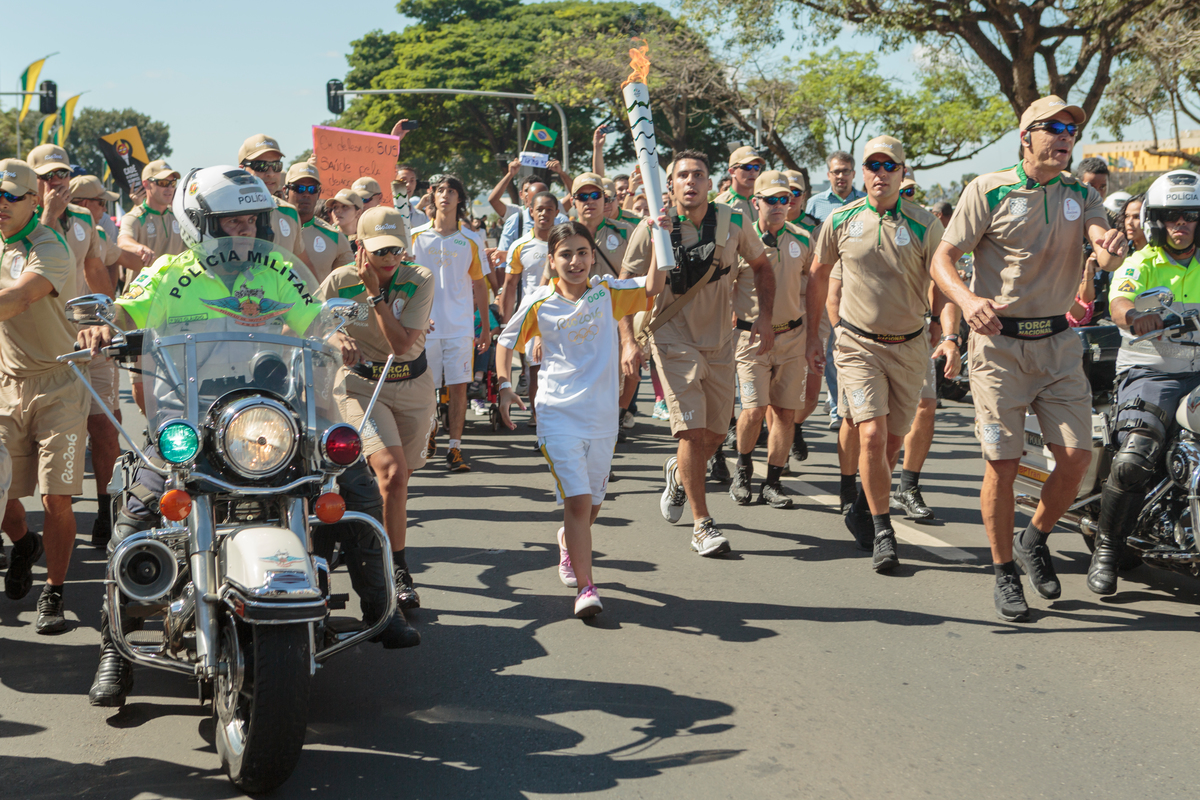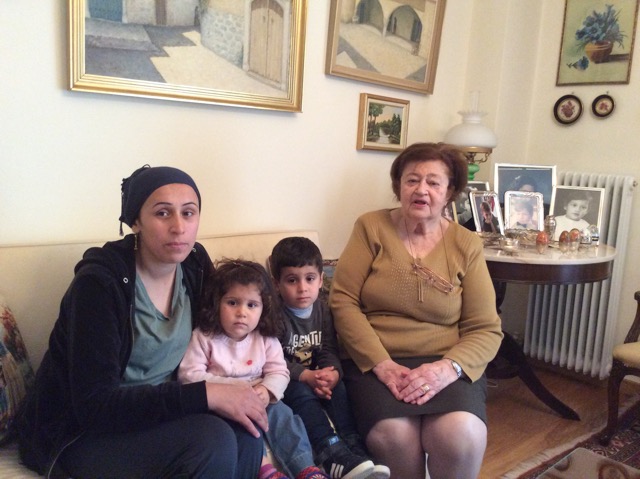Syrians get round education crunch by running their own school in Jordan
Syrians get round education crunch by running their own school in Jordan

AMMAN, Jordan, April 24 (UNHCR) In a suburb of Amman, surrounded by piles of garbage and stray sheep, Jamal and his cousin Akram teach the Arabic alphabet to a small group of Syrian refugee children. The classroom is a small orange tent where the young pupils sit on the ground with their text books on their laps. A whiteboard dangles from a wall of the tent.
It's very simple, but effective. In a country where about half of the school-aged Syrian refugee children are unable to attend public schools, the residents of an informal camp in the Jordanian capital's Kherbet Al-Souk district have taken matters into their own hands.
The initiative came from Jamal, who was a teacher in Syria and wanted to ensure that the children in their informal settlement of about 500 refugees were not missing out on their education. Jamal enlisted the help of Akram and they managed to obtain an old tent to use as a classroom in their semi-rural area.
About four months ago, they felt ready and invited parents to send their children to the new school, which has received important support from UNHCR. The children had tried to attend the local public school, but many could not find a place in the crowded institution.
They teach the Jordanian curriculum, including Arabic, Science, Mathematics and some English. The school cannot offer certificates, but at least it is preparing children to re-enter the formal education system, either in Jordan's public schools or back home in Syria if peace returns, Jamal explained.
On most mornings, boys and girls queue outside the school tent in separate lines with their hands held out for a cleanliness check. They all seem eager to get started. "I really enjoy going to school," said Khalid, aged 10, who wants to become a pilot one day.
Like many children here, he also has to work to earn money for his family. Khalid attends classes in the morning and then spends the afternoons at a local factory earning about US$1.25 an hour. But he understands the importance of a good education, and says that "learning about Maths is better than playing games for me."
His father, Jamal Mohammad, agrees and says he is happy that his children are at least getting some education, and close to home. "If this school did not exist, I would not send him anywhere," he said, citing cases of bullying against the Syrians enrolled in state schools. He feared for his boy's safety.
But at least Khalid is able to attend the school at the Kherbet Al-Souk settlement, which was established about nine months ago. More than three years into the Syrian crisis, hundreds of thousands of refugee children face obstacles in getting places in school. This has raised fears of the creation of a ''lost generation" of children who will never be able to contribute meaningfully to their country's future. Many are in danger of missing out entirely on formal learning if the war continues.
The children of Kherbet Al-Souk may be among the lucky ones. Jamal and Akram run the camp school with the help of private donations, cash assistance from UNHCR, and household goods from local charities, including a chest of drawers. And they are now using a bigger tent to deal with the extra students.
"Hopefully, Akram will obtain some caravans for the children in the future," said Jamal, who recently received good news about his own future. Shortly after speaking to UNHCR, he moved with his family to Austria, where his daughter will attend school and get a rounded education.
Back in Jordan, his initiative in setting up the school in Kherbet Al-Souk will continue to benefit Syrian refugee children who remain in Jordan.
By Haben Habteslasie in Amman, Jordan











